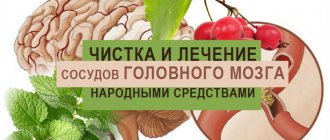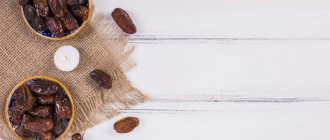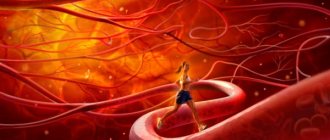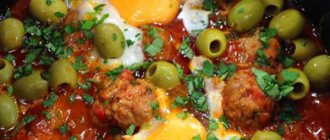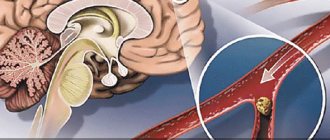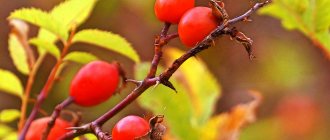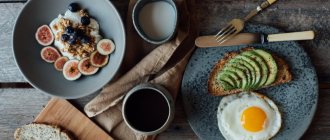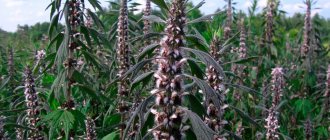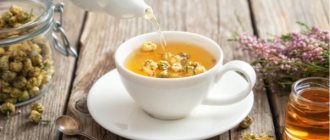A prerequisite for physical, mental and mental activity until adulthood is healthy blood vessels.
According to research , their normal operation directly depends on a person’s lifestyle, and first of all, on compliance with certain nutritional rules for vascular health.
Regular consumption of foods that are harmful to blood vessels: fatty meat and dairy products, smoked meats, sausages, low-quality confectionery products, semi-finished products and fast food sooner or later guarantees a decrease in the lumen of the arteries and blockage of the veins, which is confirmed by research .
To prevent this from happening at a young age, you need to formulate in time a diet that will not only be harmless to the blood vessels, but will become the key to their health and youth. In this article we will talk about the most useful products for human blood vessels.
1-8: Fruits and vegetables
Vegetables and fruits that are beneficial for blood vessels must make up 2/3 of the daily diet if there are cardiovascular diseases such as hypertension, atherosclerosis, varicose veins, thrombosis, or there have been strokes or heart attacks. Such products, which strengthen the walls of blood vessels and capillaries, are also useful for those who simply monitor the cleanliness of their veins and arteries and the health of the heart muscle.
Lemon
Vitamin C, essential oils, antioxidants are necessary for both sick and healthy people. Cardiologists advise using lemon constantly, and once a year cleaning blood vessels with lemon and healing the heart with drugs based on it, since citrus not only provides vitamins, but also:
- reduces the content of “bad” cholesterol in the blood;
- removes toxins;
- dissolves old cholesterol deposits;
- Lemon is a product that increases the elasticity and overall tone of blood vessels and veins of the lower extremities.
For heartburn, gastritis, and pancreatic disease, lemon is used with great caution.
Beet
This vegetable is traditionally considered one of the most necessary in the menu of a patient with atherosclerosis. Raw and cooked:
- beets cleanse arteries and are used to strengthen and improve the condition of blood vessels and blood composition;
- the product helps reduce blood pressure;
- helps reduce swelling and reduce excess weight;
- It strengthens the heart muscle well, as it contains many minerals it needs.
If you constantly take freshly squeezed beet juice for 2-4 weeks, tests for “bad” cholesterol will show beneficial changes, and your health will noticeably improve: headaches, dizziness, and tinnitus will disappear . It is best to combine it with carrot or pumpkin.
Celery
The roots and stalks of celery are used for medicinal purposes and to maintain health. The root is placed in hot dishes, and the stems are added to salads or medicinal potions are made with them, because this vegetable:
- normalizes blood sugar levels and is useful for diabetes mellitus, which often accompanies vascular pathologies;
- used as a means of lowering blood pressure and improving vascular function;
- celery strengthens the walls of arteries.
However, celery as a medicine is undesirable for varicose veins, as it dilates the walls of blood vessels.
Pumpkin
Pumpkin is recommended for vascular and heart health in any form. It is baked, stewed, boiled, and eaten raw in salads. Pumpkin juice, which is mixed with fruits and other vegetables, is also very useful. Pumpkin is famous for:
- reduces the amount of cholesterol in the blood;
- helps remove toxins and prevents clogging of blood vessels;
- helps reduce excess weight;
- The vitamin and mineral composition, as well as other beneficial substances in the seeds and pulp, strengthen and nourish the heart muscle.
There are practically no contraindications for use , with the exception of individual intolerance, which is rare, since pumpkin is considered a hypoallergenic product.
Garlic
This spicy vegetable enhances the taste of dishes and heals the cardiovascular system. It has its healing effect when added to food as a seasoning, and as part of traditional medicine:
- it lowers blood pressure and normalizes blood sugar levels;
- prevents blood cells from sticking together, thereby preventing blood clots from forming;
- garlic dissolves cholesterol plaques on the walls of blood vessels;
Since garlic is a product that strengthens the heart, it is used even after a heart attack, but not immediately and is introduced into the diet gradually. Garlic is especially effective when combined with lemon.
There are a number of contraindications: in its raw form it is used with caution for ulcers with high acidity, renal failure, diabetes, pregnancy; During lactation you should not eat garlic at all.
Garlic is one of the best products for cleaning arteries, which does not lose many of its beneficial properties even after heat treatment; Garlic exhibits its antithrombosis properties best in hot dishes.
Onion
Onions, green and other types and varieties of onions are very useful for many body systems. Onions have a particularly good effect on the condition of blood vessels:
- reduces cholesterol levels;
- dissolves cholesterol build-ups.
Onions are also good for the heart due to their high content of microelements, flavonoids, and vitamins. But it can provoke excessive activity of the nervous system and heart muscle, and also increase blood pressure.
Therefore, if you are prone to hypertension, with tachycardia and a recent heart attack, use onions little by little. It can also harm people with gastrointestinal diseases.
Ginger
Thanks to minerals, vitamins, essential oils and amino acids, ginger is interesting for heart patients and healthy people. It can replace many chemicals because:
- ginger strengthens the heart muscle and is a good preventative against its thinning;
- relieves spasms of cerebral vessels;
- thins the blood no worse than aspirin, thereby preventing the formation of blood clots;
- is a natural antioxidant - has a rejuvenating effect on all organs;
- cleans blood vessels from fatty deposits;
- useful for both high and low blood pressure;
- the product has restorative properties for vascular diseases.
But being a fairly strong remedy, ginger is not used in acute forms of diseases : angina pectoris, coronary artery disease, severe hypertension, after a stroke and heart attack, even if they were a long time ago.
Horseradish
Horseradish is used both in cooking and in folk medicine as a warming, anti-inflammatory agent. But its essential oils, vitamins and minerals from the leaves and rhizomes:
- lower blood pressure;
- horseradish helps cleanse arteries;
- stimulate metabolic processes well.
Despite the pungent taste and smell, horseradish in small quantities is useful for almost everyone. The exceptions are pregnant women, nursing mothers, people with chronic diseases of the gastrointestinal tract, liver and kidneys.
Symptomatic picture of vascular diseases
Strong and healthy blood vessels are the key to smooth functioning of the heart. Proper contraction and expansion of the vessel walls ensures continuous transport of blood.
Loss of flexibility and blockage of blood vessels lead to oxygen starvation
If the vessels lose their original elasticity, become too dense or fragile, various pathologies form:
- vegetative-vascular dystonia;
- migraine;
- stroke, atherosclerosis;
- vascular aneurysms;
- ischemia;
- hypertension.
Problems with the vascular system can be recognized by the following signs:
- insomnia;
- frequent dizziness;
- numbness of the limbs;
- memory impairment;
- decreased mental activity;
- cyanosis;
- tachycardia and heart pain;
- dyspnea;
- depression;
- fainting.
When disturbances in the functioning of blood vessels appear due to osteochondrosis or spinal injury, the patient will complain of severe dizziness, migraines and constant weakness.
Frequent headaches can signal vascular diseases in the body
At the first symptoms indicating a malfunction in the body, you must immediately make an appointment with your doctor. He will order a full examination of the body, collect anamnesis and prescribe appropriate vascular medications.
9-11: Berries
Any berries contain plant substances in concentrated form. Therefore, during the season, the beneficial properties of berries for blood vessels are actively used. They are dried, boiled, frozen for the winter, and they are also prepared into drugs that effectively combat pathologies of blood arteries and veins.
Kalina
For the prevention and treatment of cardiovascular diseases, the color, bark and bitter berry are used whole, along with the seeds. It is valuable because:
- viburnum strengthens the heart and walls of blood vessels;
- lowers blood pressure.
Viburnum is used with caution in cases of low blood pressure and a tendency to thrombosis: it increases blood clotting.
Cranberry
This is not just a natural concentrate of vitamins and minerals. The anti-inflammatory, antioxidant properties of this berry save blood vessels from many problems:
- reduce the level of “bad” cholesterol and increase the level of “good” cholesterol in the blood;
- thin the blood, protecting against stroke;
- Cranberry strengthens the heart muscle and the walls of arteries and veins.
If you have diagnoses related to the gastrointestinal tract or liver disease, you should consult your doctor. Poor tooth enamel can also prevent you from eating cranberries.
Rowan
Rowan berries and leaves are an excellent vitamin supplement for maintaining energy. The heart and blood vessels also need minerals, vitamins, tannins, which are contained in this plant, because:
- Rowan helps strengthen blood vessels;
- lowers blood pressure.
Therefore, for hypotension it is used in small quantities. Caution should also be exercised if there is a tendency to thrombosis, since rowan increases blood clotting. This healthy berry is also prohibited during ischemia and immediately after myocardial infarction , therefore it is more often used as a preventive and supportive agent.
Medicinal solution to the problem
When diagnosing disorders of the coronary, cerebral and peripheral circulation, complex therapy is indicated. Within its framework, medications from various drug groups are prescribed.
These include:
- Complex vitamin and mineral preparations (Panangin, Asparkam, Ascorutin, Lecithin, Beta-carotene).
- Nootropic drugs (Piracetam, Nootropil, Aminalon).
- Drugs with pronounced angioprotective properties (Detralex, Aescusan, Venarus).
- Antioxidant agents (Actovegin, Semax).
- Drugs that prevent the development of thrombosis (Curantil, Aspirin).
- Medicines to improve blood microcirculation (Trimetazidine, Cerebrolysin).
Taking medications as prescribed by the attending physician helps restore the elasticity of the vascular walls of the brain, improving intellectual abilities, inhibiting the onset of senile sclerosis, reducing the rate of blockage of arteries with blood clots, and preventing early heart attacks and strokes.
12-15: Drinks
In addition to healing herbal decoctions, compotes and berry fruit drinks, the diet of a person who takes care of his blood vessels may include other drinks that are beneficial for blood vessels. But each of them has its own nuances that need to be taken into account.
Green tea
Tea made from unfermented green leaves is considered one of the most beneficial drinks for blood vessels.
Green tea helps reduce cholesterol levels in the blood and gently cleanses the walls of arteries with long-term consumption.
Caffeine, contained in large quantities in green tea, is controversial about its benefits for the heart and blood vessels due to the fact that it can increase blood pressure. But recent medical research confirms that even with hypertension, green tea will not cause any harm if consumed in an amount of no more than 2 cups per day.
Coffee
The aromatic drink, beloved by many, is assessed ambiguously by cardiologists. Coffee is good for migraines caused by hypotension, as it has the ability to relieve pain. Coffee constricts blood vessels that are located in the brain and abdominal cavity. And those that are in the muscles, on the contrary, expand.
For low coffee pressure:
- coffee facilitates the work of the heart, as it improves blood flow washing the heart muscle;
- relieves pain due to angina pectoris;
- eliminates swelling of the legs.
Therefore, in small quantities it is indicated for hypotensive patients and, with regular use, can even prevent many cardiovascular diseases.
And in case of hypertension in large quantities it is dangerous , especially strong.
If you have atherosclerosis, it is better to drink high-quality instant coffee, since during cooking, that is, in natural ground coffee, substances are formed that favor the deposition of cholesterol on the walls of blood vessels.
Dry red wine
Since ancient times, this drink has proven itself to be healing if consumed in small quantities and has no contraindications. Red wine is good for the heart and blood vessels because:
- increases the amount of nitrogen in the blood, thereby lowering blood pressure by dilating blood vessels;
- reduces the content of endophelin protein, which contributes to the development of atherosclerosis;
- contains antioxidants that preserve the youth of blood vessels, brain and heart.
When talking about the benefits of red wine, we mean dry vintage red wine, and not table wine or sweet liqueurs; the latter can only increase blood pressure and do not have the beneficial properties of dry wine.
Cognac
This alcoholic drink has the same beneficial properties as red wine: it is made from grapes and contains a large amount of beneficial organic substances. That's why:
- dilates blood vessels, gently lowering blood pressure;
- prevents the formation of fatty deposits and dissolves existing ones;
- makes blood vessels more elastic.
But such an effect of cognac on the cardiovascular system will only occur if its consumption becomes regular, in a limited amount - 30-50 ml. A volume of 50-70 ml can already have the opposite effect, not to mention abuse.
The first 7 symptoms of varicose veins on the legs that are not taken seriously
When mentioning varicose veins, many patients imagine the disease like this: bulging veins, dark spots on the legs and a feeling of pain. However, these are symptoms of advanced development of the disease, and the patient ignores the first signs of varicose veins.
The first symptoms of varicose veins:
- Short-term dizziness;
- Cooling of extremities;
- Numbness of the legs;
- Mild pain;
- Distracted attention;
- Difficulty in the functioning of the speech apparatus;
- Change in skin color on the legs.
The appearance of at least one of these symptoms indicates that the vessels need support. To prevent the progression of varicose veins on the legs, you should reconsider your diet and lifestyle. Any favorable changes can significantly reduce the risk of developing the disease.
16-20: Other products
The daily menu of a heart patient, a hypertensive person, and any person who would not like to get vascular and heart diseases should include other healthy natural products. They can be part of special potions or simply eaten, while maintaining healing properties.
Honey
Honey is the most famous beekeeping product, used since ancient times not only as a delicacy, but also as a medicine. The older a person is and the more prone he is to heart disease, the more honey he needs, because:
- honey gives a lot of energy to the heart and provides it with necessary minerals;
- reduces blood density, dissolves blood clots and deposits on the walls of arteries;
- thins the blood and removes clots.
It is assumed that treating blood vessels with honey should not be combined with taking sweets containing refined sugar: this is fraught with complications.
Nuts
The concentration of nutrients in nuts is high. Therefore, nuts are necessary for the heart and blood vessels, which need plant protein, minerals, vitamins, amino acids, which are found in abundance in nuts.
Nuts nourish the heart muscle and help the walls of veins, capillaries and arteries remain elastic and strong.
The high oil content makes nuts high in calories, so although they are necessary for the circulatory and vascular system, they should be consumed in very limited quantities. Preference is given to walnuts, hazelnuts, macadamia nuts, and peanuts.
Linseed oil
A prerequisite for using this oil is its freshness: when the container is opened, the product begins to quickly oxidize, acquires an unpleasant taste and smell, and loses its beneficial properties. Flaxseed oil is good for blood vessels and the heart because:
- flaxseed oil reduces the level of “bad” cholesterol and glucose in the blood;
- prevents blood clots from forming in the veins;
- makes the walls of blood vessels impenetrable and elastic, which helps to avoid pressure surges.
Fans of flaxseed oil add it to fresh salads. But if you don’t like the taste, then simply drink a spoonful 40 minutes before breakfast, eating a small piece of rye bread.
Olive oil
Unsaturated fatty acids in olive oil are very useful for both the treatment of atherosclerosis and its prevention . They even dissolve already formed cholesterol.
Olive oil prevents the formation of blood clots, which means it prevents myocardial infarction and reduces the likelihood of stroke. It is taken on a spoon on an empty stomach and added to vegetable salads.
Propolis
In apitherapy, propolis ranks second in importance in the treatment of ischemia, angina, and heart attack. Most often it is used as part of tinctures, since alcohol well extracts beneficial substances from propolis, which:
- prevents the formation of blood clots;
- propolis gives elasticity to even middle-aged blood vessels, strengthens them and the heart;
- reduces lipid oxidation, which means it prevents the deposition of cholesterol;
- heals, accelerates tissue regeneration of the cardiovascular system.
Strengthening the blood vessels of the legs - a confident step into a healthy life
The “payback” for walking upright is the increased load experienced by the veins of the legs. Weakness of the leg veins can lead to stagnation of blood, and as a result, serious damage to the veins. There is no better way to prevent vascular diseases in the legs than movement. To reduce the load on the lower limbs, it is more effective to perform exercises in water. Swimming, water aerobics, taking balneological baths and even simply pouring cool water on your feet stimulates blood circulation and causes the blood vessels in your legs to contract and unclench with greater intensity. Such regular exercise for the vessels helps to strengthen them and makes the walls of the leg veins more elastic.
A set of exercises aimed at strengthening the blood vessels of the legs
- I.P. – standing on the floor, feet wider than shoulders. Bend forward and down, reaching the floor surface with your fingers. When performing bends, keep your legs straight.
- I.P. - sitting on the floor. Spread your legs as wide as possible, fold your arms at chest level, leaning forward to reach the floor with bent arms. Make sure your legs remain straight. After every 8-10 bends, take a minute break.
- I.P. - on my knees. Stretch your arms to the sides and start walking on your knees back and forth. If you are tired, lie down on the floor and restore your breathing.
Exercises to prevent venous insufficiency of the legs and varicose veins
Slow jogging is useful for improving the health of blood vessels in the legs. If you approach training without excessive fanaticism, dosing the intensity of the load and the duration of runs, then the benefits will be undoubted. Contraindications for training may include:
- Eating shortly before a run;
- Noise or buzzing in the ears;
- Weakness in the legs;
- Severely reduced blood pressure.
If you experience excessive fatigue or discomfort while jogging, it is better to stop, do a few breathing exercises to restore your breathing, and start walking. The intensity of training should be increased only when the body fully adapts to the increased physical activity.
Video: preventative exercises for legs
General nutrition rules
It is not difficult to correctly create a diet to maintain arteries and veins in working condition. To do this, you need to know the beneficial properties of foods and how they are absorbed by the body.
- Reducing the amount of fatty meat and fatty dairy products. The main cause of problems with blood vessels is the deposition of cholesterol on their walls. If low-quality fats, for example, trans fats or simply too much animal fats, are ingested, they are not absorbed, but are deposited on the internal organs.
- Preference for fermented milk products over dairy products. Kefir, cottage cheese, curdled milk, yogurt and other milk fermentation products are easier to digest
- Replacing most animal fats with vegetable fats. The body cannot be deprived of animal fats. But there should be much less of them than plant ones. One condition: vegetable oils must be unrefined. In this form, they are able to give the body not only energy, but also nutrition. Natural unrefined oils are transformed from just a food product into drugs that are healing for many organs.
- Reduce salt intake. It retains fluid in the body. The narrowing of the lumens of blood vessels provokes an increase in blood pressure, and excess fluid aggravates this problem. To prevent excess sodium chloride from entering your food, you should not add salt to the food on your plate or consume industrially produced finished products, including chips and sauces, which are most often heavily salted.
- Reducing the total calorie content of food. The deposition of cholesterol in blood vessels occurs, among other things, due to excess calories in the daily diet. In addition, overeating results in obesity, which further complicates the situation.
- Increasing the amount of vegetables and greens. They not only help reduce the calorie content of food consumed, but also support the functionality of the cardiovascular system better than any other product. Greens and most vegetables are sources of vegetable protein, vitamins, minerals, and organic acids that nourish the body and can also cure many ailments. Therefore, the daily menu must include vegetable side dishes, salads and juices.
- Whole grain cereals. Porridges, soups and side dishes made from uncrushed grains are preferable to those made from flakes or ground cereals, since the shell of any grain contains a lot of benefits for the body
- Fractional meals. 4-5 meals a day promotes better absorption of nutrients, which prevents the formation of toxins and their deposition in the body.
- Drinking enough drinking water. Too thick blood is dangerous for the heart and blood vessels because it causes difficulties for blood flow, promotes the formation of clots, and threatens serious pathologies of the entire system.
You can also sometimes carry out the cleaning procedure using non-standard methods - using apple cider vinegar and soda.
Recipes of proven folk remedies
In addition to individual products, you can also prepare cleansing tinctures and decoctions. Proven and effective folk recipes will help us with this.
Garlic based
Garlic is good because, in addition to its pronounced taste, it has powerful healing potential. It cleanses the walls of blood vessels and prevents strokes and heart attacks; it is very accessible and effective with long-term use, especially as an ingredient in mixtures and garlic tinctures .
- Tibetan recipe for garlic tincture. An alcohol extract is prepared from 200 ml of juice and the same amount of medical alcohol for 10 days. Then it is taken three times a day on an empty stomach with milk in three stages: from days 1 to 5, increasing the dosage dropwise from 1 to 15; from 6 to 10 days, reducing drop by drop from 15 to 1 drop; from 11 days until the end of the course, 25 drops three times a day.
- Garlic tincture with red wine. To treat blood vessels, it is infused for 12 days using 12 cloves of garlic and a bottle of quality wine. Take a teaspoon three times a day on an empty stomach.
- Honey, lemon and garlic. Each ingredient helps lower cholesterol and dissolves fatty plaques. To do this, take a ten-day infusion of six lemons, four heads of garlic and 300-400 ml of honey three times a day on an empty stomach. Lemons are used with the peel, but without seeds, infused in the refrigerator, stirring every day.
- Ginger, lemon, honey and garlic. The mixture is infused for just a day, using 1 lemon, no more than 150 g of ginger root, a small head of garlic and 5 tablespoons of honey. Everything is crushed, removing the seeds from the lemon and leaving the peel of the lemon and ginger. Take twice a day on an empty stomach with a glass of water.
- Garlic with cranberries and honey. The mixture is made from a kilogram of berries, 200 g of garlic, crushing them and leaving for 12 hours, adding 500 g of honey at the end. This is how the vessels are cleaned, using a full heaped tablespoon of the mixture in the morning and evening on an empty stomach until the drug runs out.
- Garlic with milk. This is the most gentle way: in the morning on an empty stomach, eat a clove of garlic, washing it down with milk.
- Garlic oil. It is taken in the morning, 1-2 spoons on an empty stomach. Leave for 2 weeks in the refrigerator, crushing the slices and filling them completely with any unrefined cold-pressed oil.
Based on honey
Honey is indispensable in the treatment of atherosclerosis and heart disease at home. It nourishes the heart muscle well and prevents blood vessels from becoming clogged with cholesterol and blood clots.
- Lemon with honey. The easiest way to maintain health is to consume a mixture of these ingredients in a 2/1 ratio every day with water or tea, crushing lemon with skin, but without seeds.
- Honey, ginger, lemon. A drug of this composition is prepared by grinding lemon and ginger with 2/1 peel, brewing with boiling water, infusing and then adding a spoonful of honey to a slightly cooled drink.
- Honey and cinnamon. To remove cholesterol from the body, brew 15 g of cinnamon powder in 300 ml of warm water, adding 40 g of honey and infusing the mixture for 2-3 hours. Take a teaspoon before each meal for 10 days, stop for a week and repeat the course.
- Honey with onions. To improve the blood vessels of the brain for 2-3 months in a row, take a teaspoon of a mixture of onion juice and honey 1/1 three times a day on an empty stomach.
- Honey, dill and valerian. A glass of dill seeds, 2 tbsp. crushed valerian root and 2 cups of honey are placed in a two-liter thermos, filled with boiling water to the top. Leave for a day, filter through cheesecloth, store in the refrigerator, take a spoon half an hour before meals three times a day until the mixture is finished.
Cleansing herbs
Herbs and seeds in herbal anti-sclerotic mixtures are used as an effective medicine. They are infused with alcohol, steamed with boiling water and simply brewed like tea.
- Altai tea “Altai Key” has absorbed the beneficial properties of herbs, berries and tree mushrooms, which have long been used by medicine to lower blood pressure and cleanse blood vessels. The effect of its use is noticeable after two weeks.
- Meadow clover renews the blood well, removes “bad” cholesterol, improves memory and increases the endurance of the heart, veins and arteries.
- Horse chestnut, as part of all vascular preparations, tones the veins, increases blood flow in them, reduces blood pressure, and prevents blood clots.
- Green pine cones are infused with alcohol, vodka, boiled with sugar and poured with honey: such drugs prevent and treat strokes, preventing brain cells from dying.
- Clove, thanks to its essential oils, tones blood vessels well and improves blood flow; helps with vegetative-vascular dystonia, raising blood pressure. Cloves improve memory and activate brain activity both as part of medicines and as a seasoning in food. Undesirable use for hypertension.
- Flax seeds help maintain cleanliness and flexibility of arteries; they are used as food in tinctures and infusions, enriching the blood with amino acids, vitamins and minerals.
Also check out the infographic:
Breathing exercises
Breathing exercises are the basis for many yoga asanas and other, more modern complexes. There is a wide variety of breathing patterns, but they are all based on basic principles:
- slowly filling the lungs with oxygen through the nose and exiting through the mouth;
- diaphragmatic breathing;
- alternating thoracic and abdominal types of breathing.
Proper breathing is important not only during training, but also in everyday life. If you learn to control yourself and breathe slowly and deeply, the degree of saturation of cells with oxygen increases noticeably.
Slow and deep breathing is a prerequisite for proper performance of all exercises.
What should you avoid?
In case of atherosclerosis and after 35-40 years, to prevent it, it is necessary to follow an anti-sclerotic diet. In order for the treatment and maintenance of arteries and veins with the help of medications to be effective, it is necessary to minimize a number of products harmful to blood vessels.
- Fatty meats and dairy products. They are needed for life, but to a minimum. Excess will be deposited on the walls of blood vessels, leading to sclerosis.
- Smoked meats, fast food, semi-finished products. These products are very fatty, often contain low-quality fat, as well as numerous harmful food additives: they increase blood pressure, form blood clots, and clog the bloodstream, causing strokes and heart attacks.
- Sugar in lemonades and factory-made confectionery products is not good for the body; it provokes high blood pressure, diabetes and excess weight, which is dangerous for the cardiovascular system.
- Salt more than 5 g per day provokes hypertension and edema.
- Alcohol is permissible only in pharmaceutical doses - as part of medicinal preparations based on it. In other cases, its use leads to extremely negative consequences for the diseased heart and blood vessels. Vodka and beer are especially harmful to blood vessels.
- Strong tea, cocoa and coffee thicken the blood and increase blood pressure.
